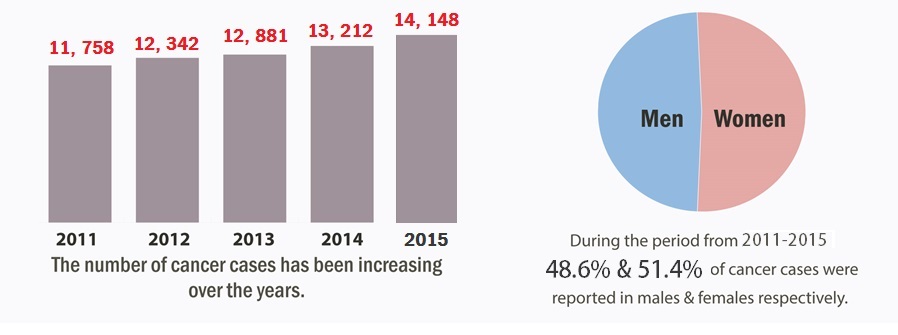Most people diagnosed with lung cancer are 65 or older. Less than 15 of women who get breast cancer have a family member diagnosed with it.
 Cancer Statistics Evidence Macmillan Cancer Support
Cancer Statistics Evidence Macmillan Cancer Support
how many people get diagnosed with cancer is important information accompanied by photo and HD pictures sourced from all websites in the world. Download this image for free in High-Definition resolution the choice "download button" below. If you do not find the exact resolution you are looking for, then go for a native or higher resolution.
Don't forget to bookmark how many people get diagnosed with cancer using Ctrl + D (PC) or Command + D (macos). If you are using mobile phone, you could also use menu drawer from browser. Whether it's Windows, Mac, iOs or Android, you will be able to download the images using download button.
Cancer prevalence is defined as the number of living people who have ever been diagnosed with cancer.

How many people get diagnosed with cancer. Therefore more seniors means more cases of cancer. Cancer has a major impact on society in the united states and across the world. 1 in 7 uk females will be diagnosed with breast cancer in their lifetime.
About 77 percent of all cancers are diagnosed in people over age 55 a segment of the us. Population that is expected to double by 2060. Lung cancer mainly occurs in older people.
Like heart disease cancer largely affects the senior population. Skin cancer is the most common cancer in the united states and worldwide. 1 in 5 americans will develop skin cancer by the age of 70.
Lifetime risk of developing cancer. Statistics tell us things such as how many people are diagnosed with and die from cancer. 23 of breast cancer cases in the uk are preventable.
Lung cancer is by far the leading cause of cancer death among both men and women each year more people die of lung cancer than of colon breast and prostate cancers combined. It does not include the number of people who may develop cancer in their lifetime. Cancer costs more than 45 billion in direct health system costs 7.
In 2016 679 people died from non melanoma skin cancer in australia. About 5 10 of breast cancers can be linked to gene mutations inherited from ones mother or father. More than 2 people die of skin cancer in the us.
A persons risk of developing cancer depends on many factors including age genetics and exposure to risk factors including some potentially avoidable lifestyle factors. A womans risk of breast cancer nearly doubles if she has a first degree relative mother sister daughter who has been diagnosed with breast cancer. A very small number of people diagnosed are younger than 45.
Prevalence of this cancer. Approximately 393 percent of men and women will be diagnosed with cancer of any site at some point during their lifetime based on 2014 2016 data. When detected early the 5 year survival rate for melanoma is 99 percent.
Around 4 in 10 uk cancer cases every year could be prevented thats more than 135000 every year. 1 in 2 people in the uk born after 1960 will be diagnosed with some form of cancer during their lifetime. It includes people diagnosed with cancer in the past as well those who were recently diagnosed.
In 2016 there were an estimated 15338988 people living with cancer of any site in the united states. Older people get cancer most often and were getting older. Having 5 or more sunburns doubles your risk for melanoma.
Cancer statistics describe what happens in large groups of people and provide a picture in time of the burden of cancer on society. In 2008 it was estimated that every year around 434000 people will be diagnosed with one or more non melanoma skin cancer in australia. A persons risk of developing cancer depends on many factors including age genetics and exposure to risk factors.
 Lung Cancer Statistics Lungevity Foundation
Lung Cancer Statistics Lungevity Foundation
 Why Are Cancer Rates Increasing Cancer Research Uk
Why Are Cancer Rates Increasing Cancer Research Uk
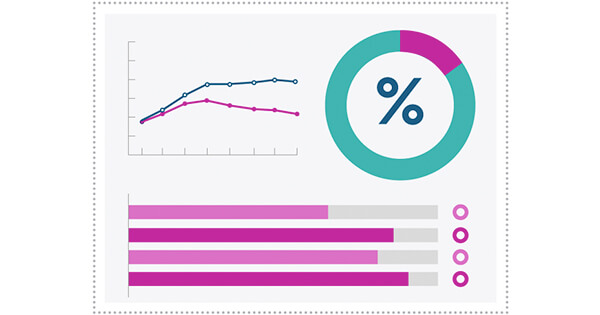 Cancer Statistics National Cancer Institute
Cancer Statistics National Cancer Institute
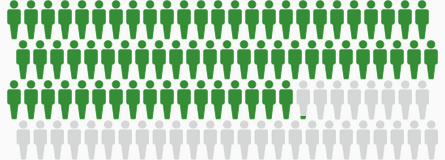 Cancer Of Any Site Cancer Stat Facts
Cancer Of Any Site Cancer Stat Facts
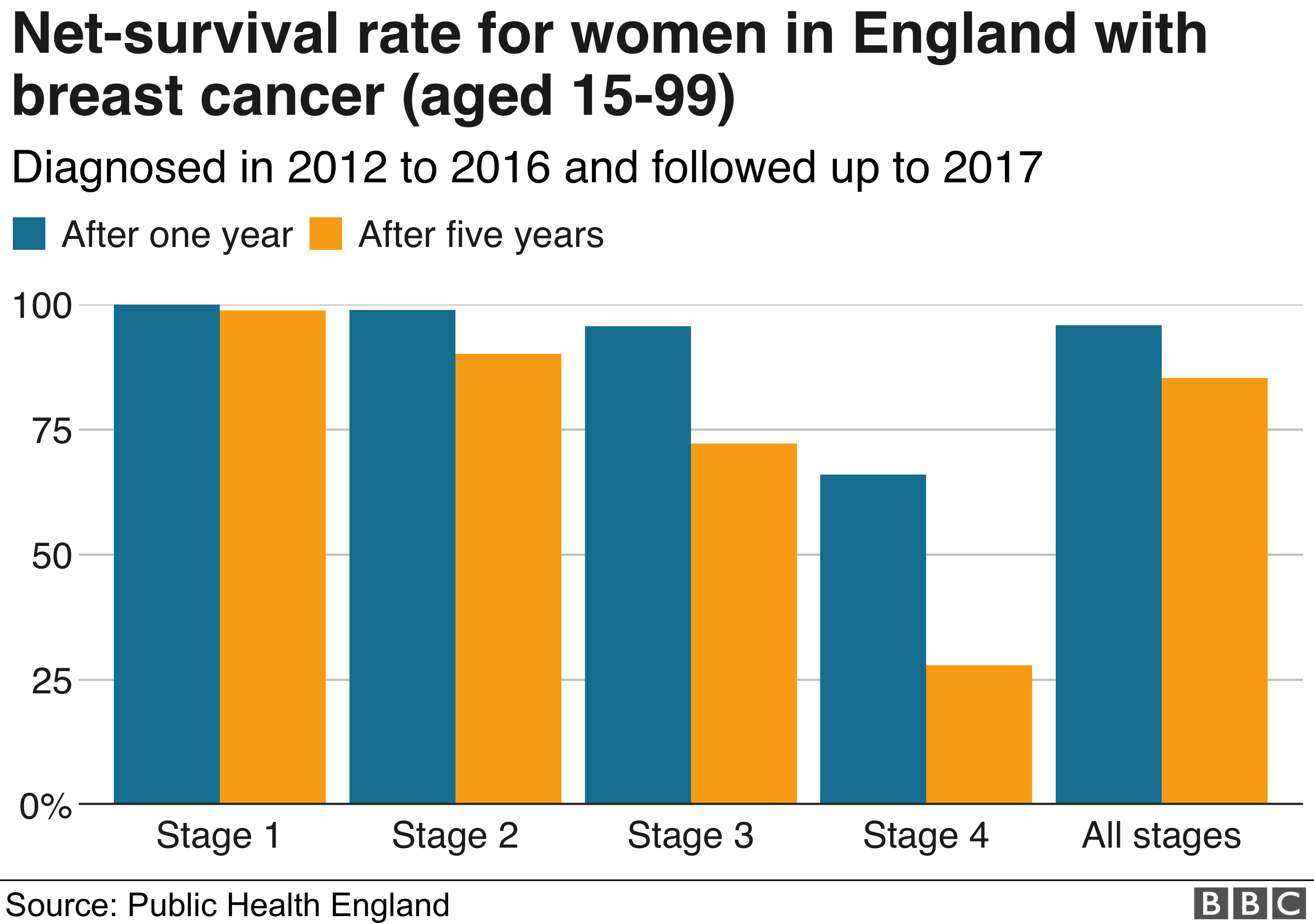 High Survival For Many Cancers Diagnosed At Stages 1 3
High Survival For Many Cancers Diagnosed At Stages 1 3
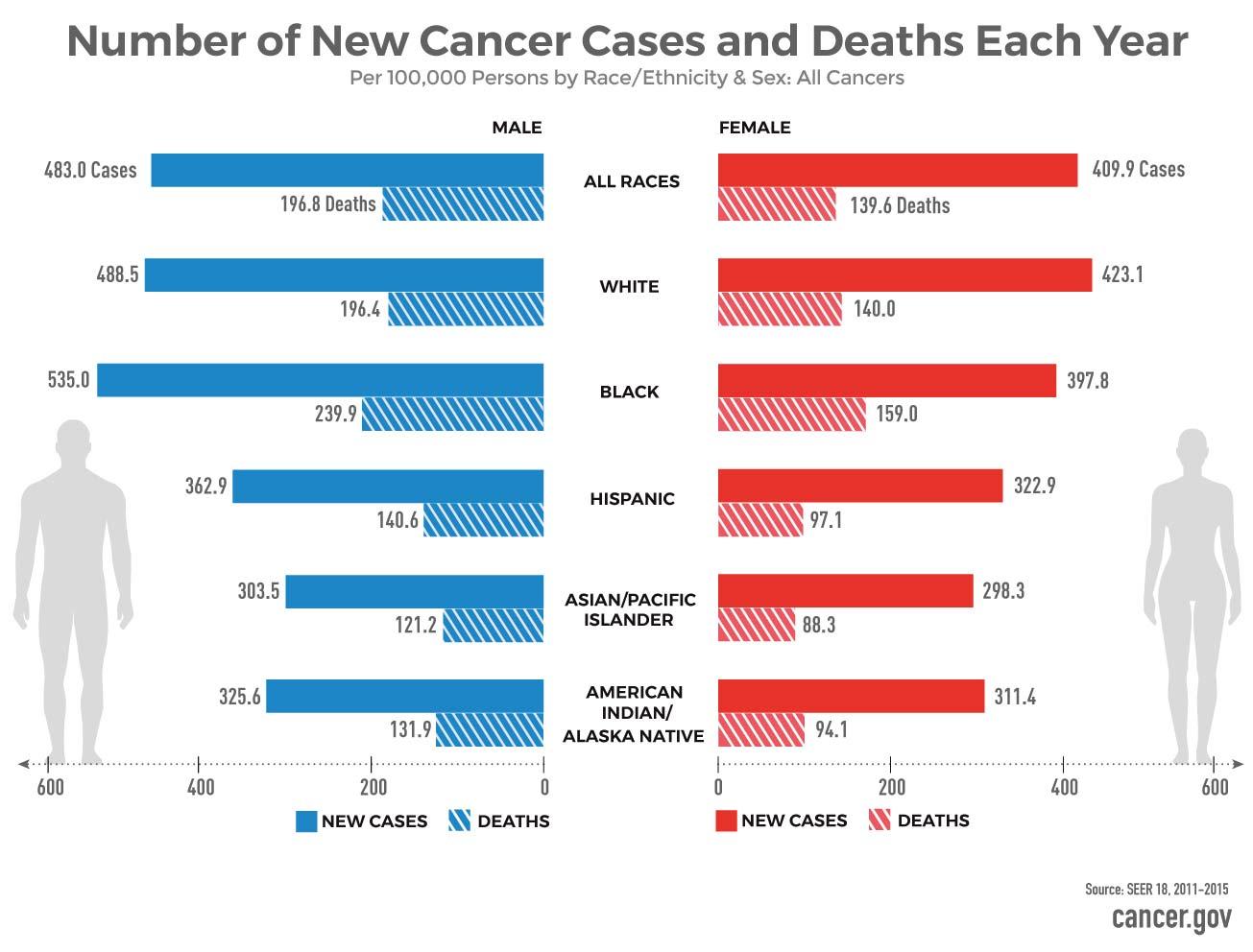 Cancer Disparities National Cancer Institute
Cancer Disparities National Cancer Institute
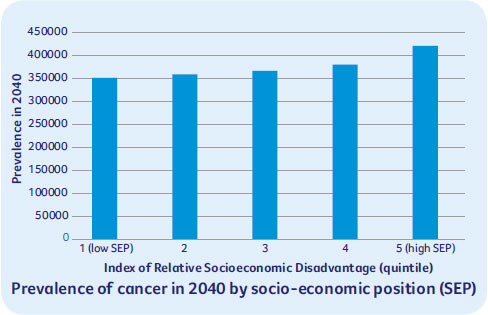 Australians Living With And Beyond Cancer In 2040 Cancer
Australians Living With And Beyond Cancer In 2040 Cancer
 Cancer Statistics At A Glance Canadian Cancer Society
Cancer Statistics At A Glance Canadian Cancer Society

